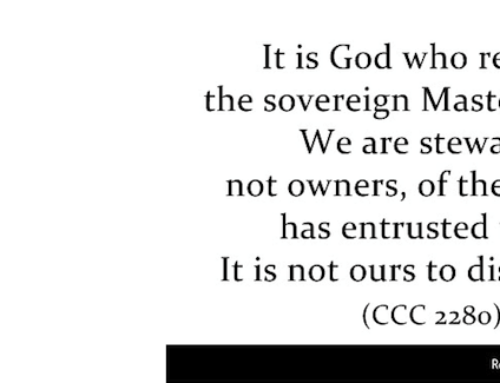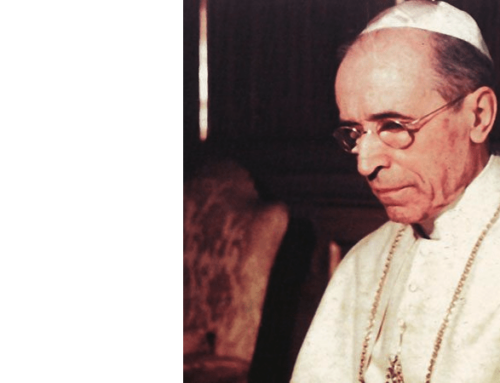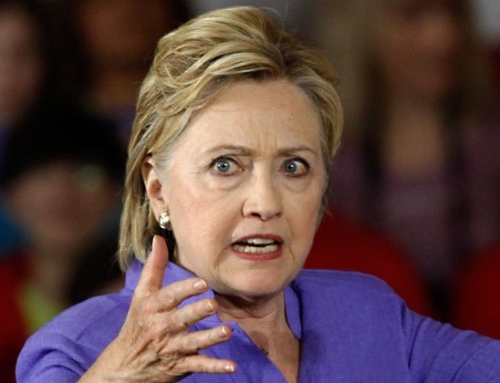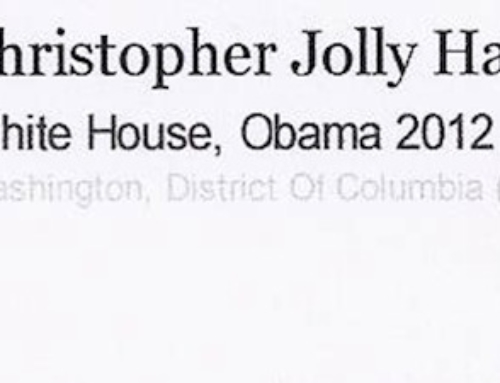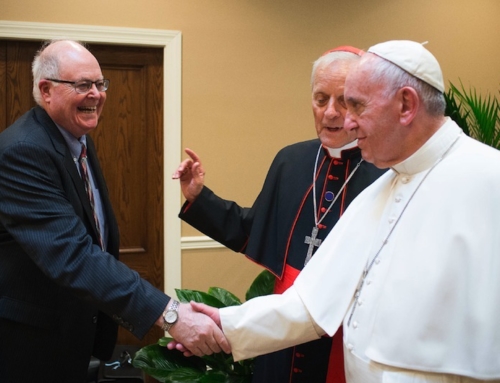(March, 2007)
The following is a list of books, articles and television shows that have called into serious question the core beliefs of Christianity during the Lenten season. No other religion is subjected to such scrutiny and none has its central tenets questioned during its holy days.
2007
· “Titanic” director James Cameron and TV-director Simcha Jacobovici claimed they have evidence of a Jerusalem tomb that allegedly houses the remains of Jesus and his family. The men present their extraordinary claims in a March 4 documentary for the Discovery Channel.
2006
· On April 2, NBC’s “Dateline” discussed The Jesus Papers, the new book by Michael Baigent, coauthor of Holy Blood, Holy Grail. Baigent contends that Jesus wasn’t divine, wasn’t born of a virgin birth, married Mary Magdalene and sired a child.
When Baigent was recently asked where he got the proof that Jesus was alive in A.D. 45, he said he got it from reports about a book he cannot find (we’re not making this up!). When asked how he knows the tomb was empty because Jesus needed some R&R, he said, “Unfortunately, in this case, there are no facts.” Put differently, the guy is a crook and “Dateline” has been had.
2005
· In 2005, Easter was on March 27. Pope John Paul II was dying at the time and so the ABC special “The Resurrection: Searching for Answers,” didn’t air until May 20. Hosted by Elizabeth Vargas, it reported: “Nearly every single detail of the Easter story remains a question of debate. Among them: Was the tomb really empty? And even more basic: Was Jesus ever buried in the first place?”
· On March 28 (Easter Monday), Newsweek ran a lengthy piece by Jon Meacham called “From Jesus to Christ” that was quite good. But even in this article, the reader is asked to ponder, “How much of this is remembered history, and how much heartfelt but unhistorical theology? It is impossible to say.”
2004
· The April 12 (Easter Monday) issue of Time magazine featured a major cover story called “Why Did Jesus Die?” It presented both liberal and orthodox Christian beliefs on the meaning of Jesus’ resurrection.
· On April 5 (during Holy Week), ABC had a Peter Jennings special report, “Jesus and Paul, the Word and the Witness.” Lasting three hours, it included the Doubting Thomas’ from the so-called Jesus Seminar. Viewers were treated to the work of Robert Funk and John Dominic Crossan, skeptics who believe that Jesus’ body was eaten by wild dogs. The documentary clearly did not take the New Testament seriously.
2003
· On April 20 (Easter Sunday), the Discovery Channel showed a documentary called “James: Brother of Jesus.” It was based on a book which claimed that James was Jesus’ brother and that he was the true leader of the early Church.
2002
· On March 19 (Easter was March 31st), NPR’s “Talk of the Nation” ran a segment on “Biblical archaeology” wherein the host said, “Two central holidays for Jews and Christians are right around the corner, Passover and Easter. Both are based on those religions’ holiest book, the Bible. For Jews, the story is the exodus from slavery in Egypt; for Christians, the story is the crucifixion of Jesus and his return from the dead on the third day. But what if those stories were not literally true? What if the ancestors of the Jews were never slaves? What if Jesus did not rise from the dead? What would happen to Judaism and Christianity?”
2001
· On April 15 (Easter Sunday), the Discovery Channel aired a three-hour documentary called “Jesus: The Complete Story.” According to the Houston Chronicle, the film was about scientists, archaeologists, theologians and historians whose “mission is to confirm or deny the facts of Jesus’ life and death as written in the Gospels, that billions of Christians around today’s world accept as gospel truth.” The documentary suggested that perhaps Jesus and Judas planned for Judas to hand Jesus over ahead of time.
· On April 13 (Good Friday), ABC’s 20/20 had a segment called “Modern Archaeologists, Theologians and Scholars Develop New Theory About Death of Jesus, and Who Was Responsible.” Barbara Walters announced, “Tonight, with the help of leading religious experts, we bring you startling revelations about the life and death of Jesus. In the nearly 2,000 years since his crucifixion, countless acts of love and terrible acts of hate have been carried out in his name. But even as the story endures, it continues to change. Tonight, Bob Brown takes you back to Jerusalem in search of the real Easter story.” A Catholic priest, Fr. Jerome Murphy-O’Connor discussed how the seven last words of Jesus should not be taken historically and said of the words in Matthew “His blood be upon us and our children”: “This was the root of anti-Semitism in Christianity. This was the root of the Holocaust.”
2000
· The April 24 (Easter Monday) issue of U.S. News and World Report had a cover story called “Why Did He Die?” Jeffery L. Sheler’s piece stated: “But while the Gospel story has inspired piety and devotion through the centuries, it also has spawned darker passions. From the rise of the Holy Roman Empire to the fall of the Third Reich and even today, purveyors of anti-Semitism have sought to justify their prejudices by appealing to the Gospels’ depiction of Jews as jealous villains who plotted against Christianity’s founder.”
1999
· The April 5 (Easter Monday) issue of U.S. News & World Report featured a 2317 word article called “Reassessing an Apostle: The Quest for the Historical St. Paul Yields Some Surprising New Theories.”
The article by Jeffery L. Sheler reports that scholars suggest that as St. Paul believed the Second Coming was imminent, “he did not intend his sometimes stern judgments on doctrinal matters and on issues of gender and sexuality to become church dogma applied, as it has been, for nearly 2,000 years.” It also reports that many say he didn’t write many of the letters in the Bible attributed to him.
1998
· On April 9 (Holy Thursday), NPR’s “Talk of the Nation” with Lynn Neary did a segment called “The Historical Jesus” with John Dominic Crossan (ex-priest and former co-director of the Jesus Seminar) as a guest. It was all about the Jesus Seminar theories. While Lynn Neary simply interviewed Crossan about his beliefs on the resurrection, it did give him quite a platform.
1997
· On March 28 (Good Friday) PBS’s “News Hour” with Jim Lehrer presented a piece called “Considering Jesus” by Richard Ostling of Time magazine. The piece was all about the Jesus Seminar and asked the question, “Should New Testament accounts of his [Jesus’] life be taken literally or figuratively?”
While Ostling did not take any positions, the entire piece was about the Jesus Seminar, and how they say much of what is in the Bible didn’t happened. Professor Marcus Borg (Oregon State University) was one of these men who says the resurrection was only symbolic. He was given a lot more time than N.T. Wright, a scholar (Dean of Lichfield Cathedral) who said the resurrection literally happened.
1996
· The April 8 (Easter Monday) issue of Time magazine featured a big story called “The Gospel Truth?” The subtitle accurately conveyed the gist of the story: “The Iconoclastic and Provocative Jesus Seminar Argues that Not Much of the New Testament Can Be Trusted. If So, What are Christians to Believe?”
· The April 8 issue of Newsweek ran a lengthy article called “Rethinking the Resurrection” by Kenneth Woodward. The piece was fairly written, though much space was given to those like John Dominic Crossan, the Jesus Seminar writer who likes to try to debunk the story of the resurrection.
1995
· The April 10 issue of Time magazine included the cover story called “The Message of Miracles.” The piece contrasted the faith of American individuals who believe in miracles with the claims advanced by heterodox Christian theologians. The article paid special attention to the group of theologians known as the Jesus Seminar, who had declared in the days before Lent began that Jesus did not literally rise from the dead and who had previously denied the virgin birth.
The article also described other scholars who claim that modern science and archeology show that the miracles of the Bible did not actually happen. Special attention was paid to the renegade professor of biblical studies and ex-priest John Dominic Crossan, who claims that Jesus’ followers were too afraid to bury him, so Jesus’ body was left hanging on the cross or eaten by wild dogs. Also mentioned was Episcopal Bishop John Shelby Spong, who rejects much of the Bible and declared, “I’d like to think Christianity is something that would appeal to people who are also well educated and who are modern people.”
1994
· On March 31 (Holy Thursday) CNN aired a segment featuring a debate between Episcopal Bishop John Shelby Spong and Rev. Peter Stavinskas. Spong claimed that the Gospel story of an angel appearing, putting the soldiers to sleep and rolling back the stone of Jesus’ tomb is “stuff of legends.”
He also stated that, “I just don’t believe that modern men and women are going to be called into faith by things like the story of the empty tomb. If you look at the first Gospel to be written, the first time the tomb story appears, no faith is born.”
· The April 4 (Easter Monday) edition of the NPR show “Weekend Edition” hosted by Scott Simon included a segment with Episcopal Bishop John Shelby Spong where he discussed his new book, Resurrection: Myth Or Reality? Spong said of the resurrection, “I don’t think it’s fair to say that what the resurrection originally was was a physical resurrection, or Jesus sort of walking out of the grave and being seen in a physiological way. The question is, what happen to the story between whatever it was that occurred, and the first writing of that?”
· The April 4 (Easter Monday) issue of Newsweek featured a story titled “A Lesser Child of God” about the Jesus Seminar and its portrait of Jesus. The seminar claims that the real Jesus was not the Son of God, but an illiterate Jewish peasant. The Jesus Seminar contributors also believe that Jesus did not physically rise from the dead, rather he was taken down from the cross and buried in a shallow grave where he may have been eaten by dogs.
1993
· Harper waited until the month of Easter to release The Lost Gospel: The Book of Q and Christian Origins, a book by Burton Mack that challenges orthodox Christian beliefs; Mack summoned Christians to “rethink how to live in a multicultural world.” The Boston Globe chose Easter Sunday to review it and the Chicago Tribune published its piece on the book on Easter Monday.
1992
· Ex-priest and Jesus Seminar guru John Dominic Crossan published his famous book, The Historical Jesus, in 1991 but the major newspapers waited until the Lenten season to promote his heterodox views about Jesus being nothing more than a nice peasant who entertained egalitarian ideas. For example, though the New York Times had already given Crossan’s book a front-page story, just one week before Easter it ran another story on it. The San Francisco Chronicle treated Christians to a review of the book on Good Friday, the Los Angeles Times delivered one on Holy Saturday and the Washington Post gave its Easter-present review on Easter Sunday.
1991
· On March 28 (Holy Thursday), CNN’s “Larry King Live” featured a debate between two Episcopal leaders, Bishop William Frey and Bishop John Shelby Spong. Spong had recently released a book called “Rescuing the Bible from Fundamentalism.” Larry King introduced the show by asking, “Was Saint Paul a repressed homosexual; Mother Mary not a virgin? These are the claims of” Bishop Spong.
Throughout the show, Bishop Spong advanced his heterodox views. When a caller challenged him, the bishop stated that his ideas were new, and “I would like to say that every new idea that’s come about in the Christian faith has always been resisted…we don’t believe that the earth is the center of the universe, but we surely did persecute Galileo when he first suggested that.”
1990
The “Horizons” section of the April 16 (Easter Monday) edition of U.S. News & World Report featured three articles by Jeffery L. Sheler titled “The Last Days of Jesus,” “The Burial,” and “The Resurrection.” The pieces focus on the “controversy” over the crucifixion of Jesus, noting scholars who claim the historical accounts of Christ’s death and resurrection do not hold up and others who maintain the Easter narrative is a mix of legend and fact.
Sheler describes critics who maintain that the accounts of the burial of Jesus conflict with the likely behavior of Jews of that time, as well as theologians who hold that Jesus’ resurrection was purely metaphorical.


